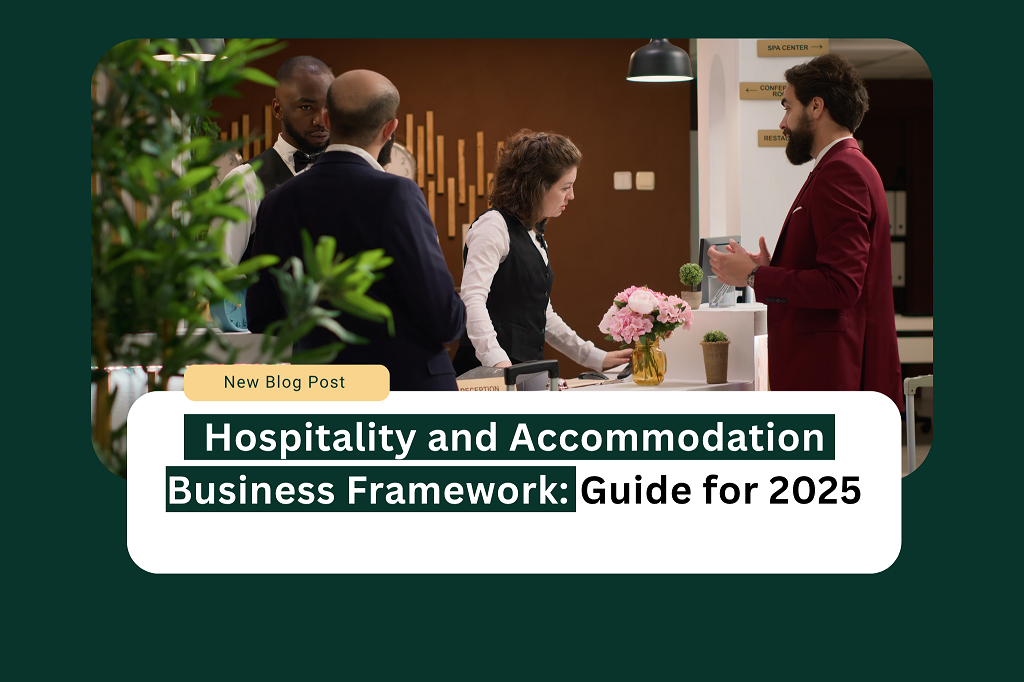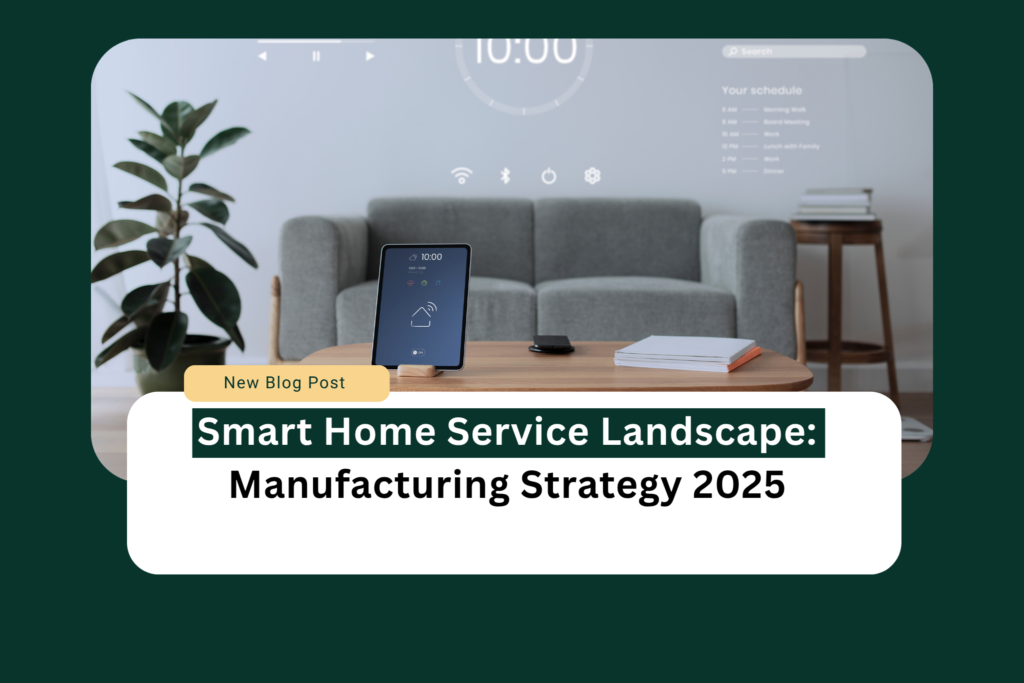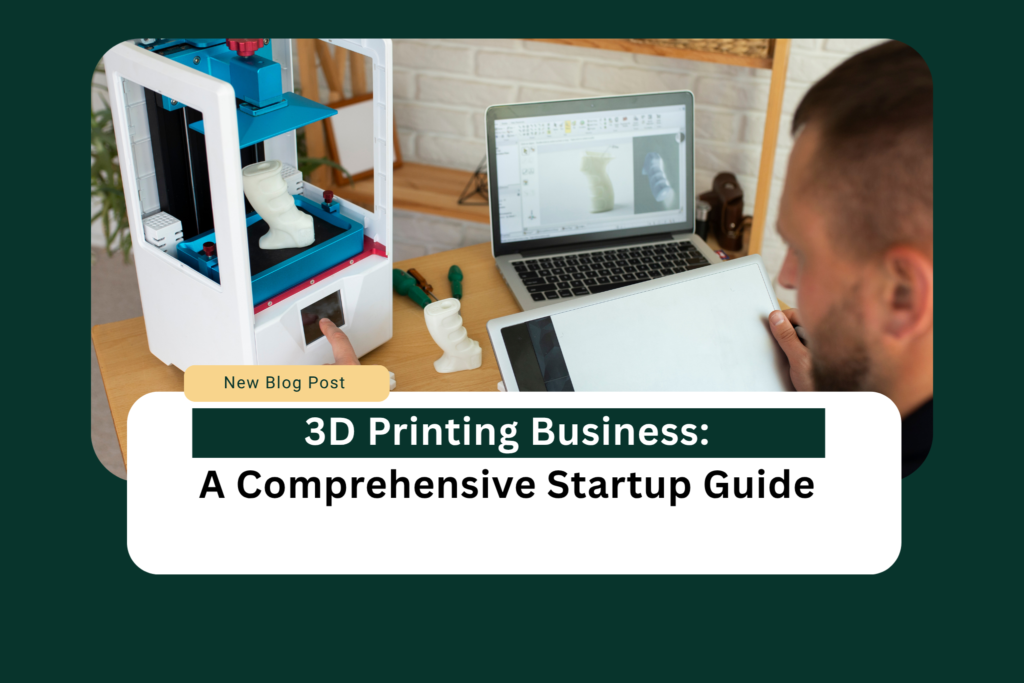Introduction
The hospitality and accommodation business framework has undergone substantial changes in recent years as the industry proved its ability to adapt during extraordinary times. AHLA reports that U.S. hospitality and accommodation businesses will bring in more than $220 billion in revenue when 2025 concludes indicating strong economic recovery and expansion.
The document delivers detailed information about necessary ingredients for business success which features empirical data analysis and expert recommendations suitable for those serving in the hospitality field or starting a new accommodation venture.
Market Analysis and Opportunity Assessment
A market analysis forms the basis of any successful hospitality and accommodation business framework. Hospitality continues to transform at a rapid pace because consumer demands shift together with technological innovation as competitive forces transform. The majority (67%) of hospitality startups achieve success through complete market research according to Deloitte research which reveals their ability to find empty market segments and enhance their offering effectively. Analyzing both general and local market conditions remains vital during your assessment.
Strategic Planning and Business Model Development
The following stage of hospitality and accommodation business framework development requires market research data to create strategic plans and business models. Businesses in the hospitality sector operate using various model types which include traditional hotels and motels as well as vacation rentals along with boutique properties extended stay options and novel combined hospitality concepts. These different operational models have their own set of requirements while they also need distinct capital and revenue generation possibilities.
Research from PwC in 2024 reveals that hospitality companies reach increased profitability by 22% if they execute models that serve specified target markets. Your business model must align with what your intended customer demographic wants in terms of pricing preferred amenities and tolerance for cost. Tourists from millennial and Gen Z generations and business clients have distinct preferences that affect their hospitality selection by experiencing connected amenities and technological features or needing efficient workspaces and loyalty schemes.
Financial Planning and Investment Considerations
Financial planning stands as an essential element for the hospitality and accommodation business structure since this industry needs high capital investments. The first investments in this sector involve buying or leasing properties along with making renovations, purchasing furnishings, building technology systems, and covering pre-opening costs. HVS reports that construction expenses for building midscale hotels in the United States amount to between $115,000 and $150,000 per room while land purchases are omitted from this calculation.
Operational Excellence and Service Delivery
The foundation of the hospitality and accommodation business framework consists of operational excellence together with service delivery. The strategic and financial aspects create foundations, but daily operations become the critical elements for achieving satisfied guests and business prosperity. The latest hospitality industry study from J.D. Power shows service quality and consistency create the strongest correlation with guest satisfaction, which surpasses even price factors in many market segments.
The operational framework needs to develop standard operating procedures (SOPs) that cover the front desk and housekeeping departments together with food and beverage and maintenance and guest services operations. Standard operating procedures create consistent operations while delivering step-by-step instructions for staff to manage different situations effectively. Organizations must maintain training initiatives that uphold these standards and teach staff members to make suitable decisions when handling service recovery cases.
Marketing and Distribution Strategy
The hospitality and accommodation business framework requires a strong marketing and distribution strategy as its second critical foundation. Modern businesses need both strong online business visibility alongside reputation management in today’s digital environment. The TripAdvisor data shows that 83% of travelers read hotel reviews before making reservations, while properties achieving 4.5 stars or higher charge higher rates than their less-rated competitors by 20-28%.
Your distribution plan should maintain equilibrium between reservations made directly through your site and phone and bookings obtained through OTAs, GDS, and travel agencies. The useful market visibility of OTAs comes at a cost due to their typical commission fees, which range between 15% to 25%. The optimal distribution strategy follows industry standards by achieving 40-50% direct bookings while maintaining at least this percentage of direct reservations for maximum profit.
Technology Implementation and Innovation
Technology has had an impact on all the areas of hospitality and accommodation management, including the acquisition of guests, and back-office operations for service delivery. The use of technology solutions that are meticulously designed reports the enhancement of operational efficiency, guest satisfaction, and profitability.
New and modern technologies are the ones also that are reshaping the hospitality industry. Based on a Skift Research report, 72% of hotels plan to implement or enhance mobile check-in capabilities by 2025, while 58% are exploring artificial intelligence applications for personalization and operational optimization. It was only a short time ago that contactless technologies were pushed into the mainstream as a result of necessity. Today, many of them have even become a traveler’s basic need.
Sustainability and Social Responsibility
Nowadays, sustainability is not just a small part of the hospitality and accommodation business framework, it has become a very important part. Booking.com has published its Sustainable Travel Report recently which states that 76% of travelers are giving sustainable practices priority when they are choosing accommodations, and 59% of them will pay environmentally responsible properties the extra money.
The sustainability framework should not be only about environmental impacts like energy efficiency, but also social responsibility (eg. fair labor practice (respect for human dignity), community engagement.), and economic sustainability (eg. good distribution of profits to local suppliers, creation of stable employment).
Risk Management and Resilience Planning
Recent occurrences have uncovered the significance of prioritizing risk management and resilience planning in the hospitality and accommodation business framework. Beginning from the worldwide disruptions to the localized ones, the fight against various threats, and ensuring the triumph of survival must be a top priority for the properties.
A well-developed risk management system impacts troublesome issues such as safety, and security, cybersecurity, compliance, financial risks, and strategic risks (competitive pressures, changing consumer preferences). Insurance coverage, emergency response protocols, business continuity plans, and financial reserves all contribute to organizational resilience.
Conclusion
The hospitality and accommodation business framework is a combination of ideas, techniques, and practices aimed at making the right choices of operational goals, financial management, marketing, and the use of new technology for the business. Societal and environmental challenges: Outsourcing risk management is a common feature in the hospitality and accommodation business framework. Success in this dynamic industry requires both adherence to fundamental principles and adaptability to evolving conditions.
We would love to hear your feedback about this article and encourage you to share it on your social media accounts to help others in the industry benefit from these insights.
FAQs
What initial investment is typically required for different hospitality business models?
Initial investments vary significantly: budget hotels average $115,000-150,000 per room (excluding land), boutique properties typically require $250,000-400,000 per key, while vacation rental portfolios can start with as little as $50,000-100,000 for a single well-located property.
How can I optimize my revenue management strategy?
Implement dynamic pricing algorithms that analyze competitive rates, demand patterns, and booking windows. Research shows properties using sophisticated revenue management systems achieve 5-10% higher RevPAR.
What sustainability initiatives deliver the best ROI?
Energy-efficient lighting and HVAC systems typically generate 30-50% utility savings with 2-3 year payback periods. Water conservation measures reduce consumption by 25-35% with minimal investment. Smart room controls deliver the dual benefits of enhanced guest experience and resource optimization while appealing to the 76% of travelers who prioritize sustainable practices.
How should I balance OTA relationships with direct booking strategies?
Most successful properties maintain 40-50% of direct bookings through responsive websites, loyalty programs, and targeted marketing. Negotiate OTA contracts carefully, leveraging performance data to secure favorable terms.
What are the most critical technology investments for new hospitality businesses?
Prioritize an integrated PMS system, a mobile-optimized booking engine, a manager, and a communication platform. Properties implementing this core technology stack report 18% higher guest satisfaction and 12% improved operational efficiency. Budget 3-5% of projected revenue for technology investment and ongoing maintenance/upgrades.
Read More : Auto detailing and wash business strategy








